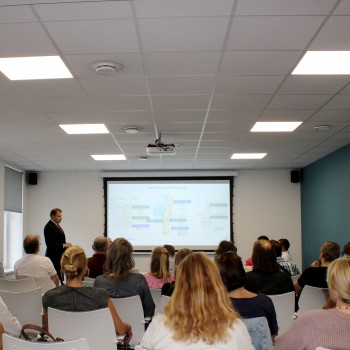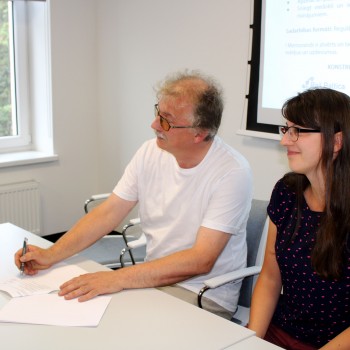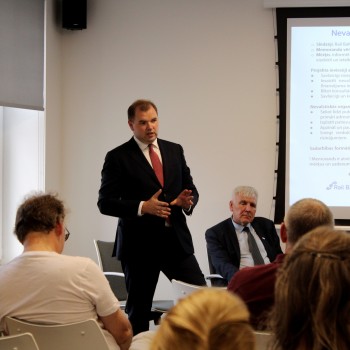Signing of the memorandum on public involvement in the design and construction of Rail Baltica
The Rail Baltica project implementers and representatives of several non-governmental organizations in Latvia agreed on regular information exchange, mutual consultation and involvement in the implementation of the Rail Baltica project by signing a joint memorandum of cooperation.



The memorandum of cooperation will ensure regular meetings and exchange of information on the progress of the project, technical solutions and insights into future plans and challenges. It will also bring attention to the infrastructure project and the layout of the main track developed during the design process, as well as the evaluation of alternatives and the exchange of opinions on the Rail Baltica design and construction management, including the location of regional stops in Latvia.
The Memorandum with the Ministry of Transport of the Republic of Latvia, Eiropas Dzelzceļa līnijas and RB Rail AS was signed by nine organizations – Anniņmuiža district and creative initiative association “Riga Annenhof”, Āgenskalns district association, Organisation of people with disabilities and their friends “Apeirons”, Bieriņi district development association, Latvian Cyclist union, Union “Pilsēta cilvēkiem”, Torņakalns development association, association “Zasulaukam un Šampēterim” and local planners SIA “Grupa 93”.
“The closed memorandum is a good example of how different groups of society can be involved in the realization of important projects in a timely manner. It is important that this is not only a formal step, but that a real cooperation and information exchange with the project implementers has already started before signing the memorandum,” says Roberts Kārkliņš, Chairman of the Board of Āgenskalns district association. “Āgenskalns district association, working within the framework of this memorandum, sees the opportunity to help project implementers with proposals in order to find solutions that will allow Āgenskalns and other Pārdaugava neighborhoods to preserve their environment while also providing new opportunities for mobility.”
This cooperation also includes the organization of joint events and the creation of a Rail Baltica ambassador network in order to distribute information about the project to a broader audience and to create recognition of the Rail Baltica railway line as well as increase the awareness amongst different social groups on the solutions, plans and developments of the project.
The Memorandum is open for other non-governmental organizations representing citizens and the environment to join.